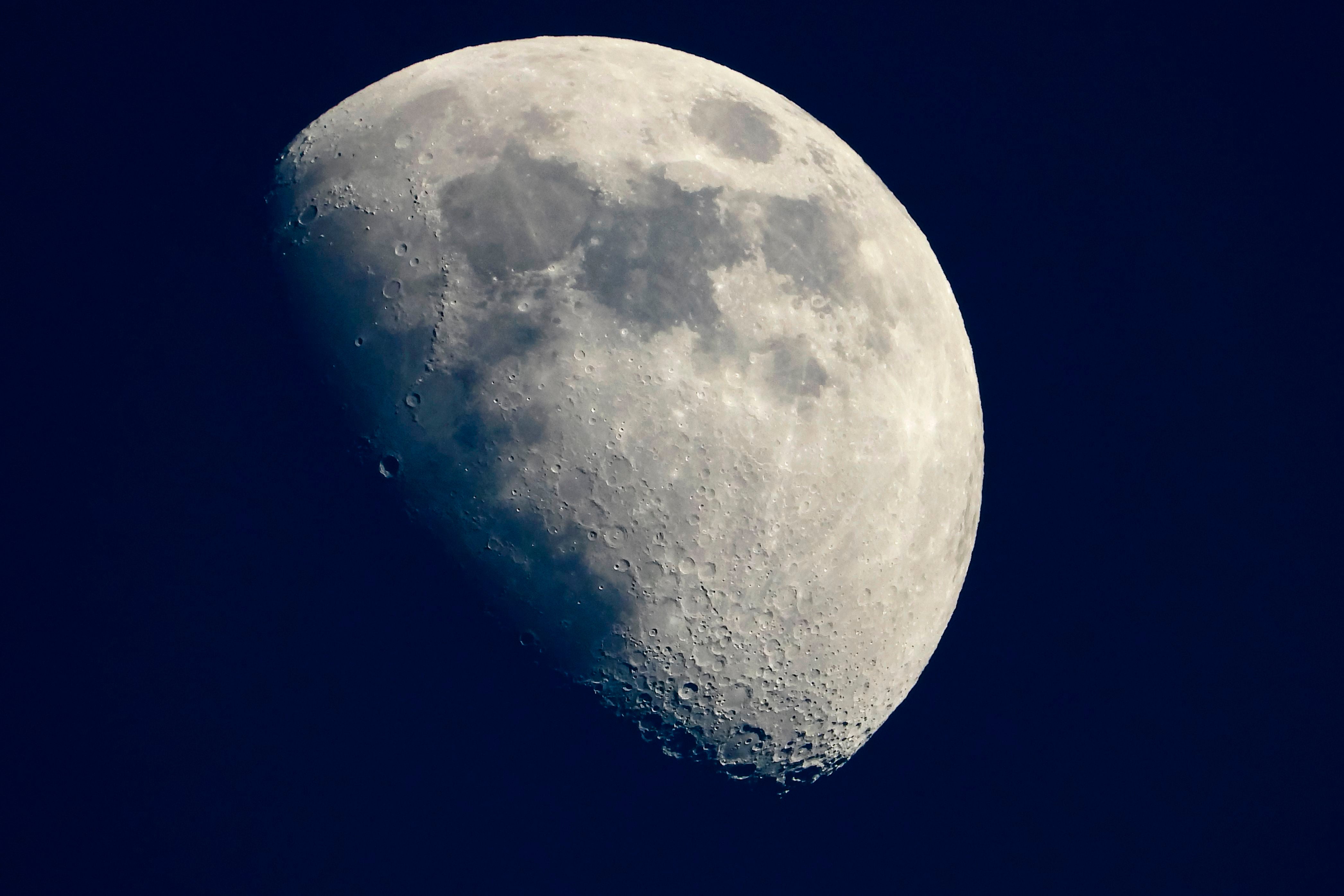Fight for Moon’s limited resources could lead to ‘conflict’ between governments and private companies, scientists fear
'We don't have a second moon to move on to. This is all we have to work with’

Scientists fear that the Moon might be plundered too quickly by private companies hoping to extract its valuable resources, new research has hypothesized.
A lack of international policies and agreements could result in tensions, overcrowding, and a rapid expansion of moon mining projects, the Center for Astrophysics | Harvard & Smithsonian says in a new paper.
Water and iron are particularly valuable resources that could be collected from the Moon, which would help companies construct infrastructure and develop agriculture as well as letting them avoid the vast expense of transporting such materials from the Earth.
"A lot of people think of space as a place of peace and harmony between nations. The problem is there's no law to regulate who gets to use the resources, and there are a significant number of space agencies and others in the private sector that aim to land on the moon within the next five years," said Martin Elvis, astronomer at the Center for Astrophysics | Harvard & Smithsonian and the lead author on the paper, which has been published in Philosophical Transactions of the Royal Society A.
"We looked at all the maps of the Moon we could find and found that not very many places had resources of interest, and those that did were very small. That creates a lot of room for conflict over certain resources."
The treaties that do exist, such as the 1967 Outer Space Treaty, do not offer staunch protection of celestial bodies from companies. The Outer Space Treaty declares that “the moon and other celestial bodies shall be used by all states parties to the treaty exclusively for peaceful purposes”, but is not exclusive to governments.
The United States insisted on a clause that allowed commercial companies to explore space as long as they “require authorisation and continuing supervision” of the government, as opposed to the Russian view that space exploration should be limited to governments.
A following treaty, the 1979 Moon Treaty, has not been ratified by any state that engages in self-launched spaceflight such as the US, Russia, China, Japan, or members of the European Space Agency.
"It tries to address the ownership of resources obtained from outer space, and really it was pretty much rejected by the international community”, Dr Jill Stuart, head of space policy at the London School of Economics, previously told The Independent.
In 2020 the Artemis Accords were announced, which are a set of agreements that requires countries working with the US to return to the moon to commit to transparency about their work, to only explore space for “peaceful purposes”, and to guarantee they would work together to save any astronauts that came into danger during a mission. However, this still does not protect celestial bodies from being overly exploited for resources.
"The biggest problem is that everyone is targeting the same sites and resources: states, private companies, everyone. But they are limited sites and resources. We don't have a second moon to move on to. This is all we have to work with." Alanna Krolikowski, assistant professor of science and technology policy at Missouri University of Science and Technology, and a co-author on the paper, said in a statement.
"While a comprehensive international legal regime to manage space resources remains a distant prospect, important conceptual foundations already exist and we can start implementing, or at least deliberating, concrete, local measures to address anticipated problems at specific sites today."
Governments should also identify worse-case outcomes, such as overcrowding and interference at each site, and use those as a basis for legislation, Krolikowski added.
Existing laws which protect common-pool resources, such as the oceans or local lakes on Earth, could be used as a baseline for these regulations, but policymakers need to decide how these resources will be classified.
"Are these resources, say, areas of real estate at the high-value Peaks of Eternal Light, where the sun shines almost continuously, or are they units of energy to be generated from solar panels installed there? At what level can they can realistically be exploited? How should the benefits from those activities be distributed? Developing agreement on those questions is a likely precondition to the successful coordination of activities at these uniquely attractive lunar sites", Krolikowski said.
Russian president Vladimir Putin warned last year that a new space race may develop between his country and the US, pushing the expansion of anti-satellite technologies and "space-based weapons" capable of targeting Earth and other objects in orbit.
Join our commenting forum
Join thought-provoking conversations, follow other Independent readers and see their replies
Comments




Bookmark popover
Removed from bookmarks